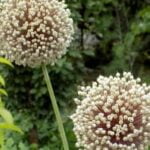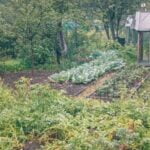Are you interested in starting a raised bed vegetable garden in Colorado? If so, you’ve come to the right place. In this article, we will provide you with all the information you need to get started with raised bed gardening in this unique climate. From finding the right location for your garden to choosing the best vegetables to grow, we will cover it all.
Raised bed vegetable gardening is a popular and effective way to grow plants in Colorado’s challenging climate. Whether you’re dealing with extreme temperatures, high altitude, or dry conditions, raised beds can provide a solution. With the right preparation and care, you can enjoy a bountiful harvest of fresh and healthy produce right from your own backyard.
In the following sections, we will explore the benefits of raised bed gardening in Colorado’s unique climate and provide tips for preparing and building your raised bed garden. We will also discuss how to maintain and water your garden in Colorado’s arid climate, as well as how to deal with pests and diseases that may affect your plants.
By the end of this article, you will have all the knowledge you need to start your own successful raised bed vegetable garden in Colorado.
Benefits of Raised Bed Gardening in Colorado’s Unique Climate
Raised bed gardening offers numerous benefits for gardeners in the unique climate of Colorado. By utilizing raised beds, gardeners can have better control over their soil, drainage, and overall growing conditions. This is particularly important in Colorado’s variable climate, where extreme temperature fluctuations and dry conditions can pose challenges for traditional gardening methods.
Improved Soil Quality
One of the main advantages of raised bed gardening in Colorado is the ability to create custom soil mixes that are well-suited to the local climate and growing conditions. In a raised bed, gardeners can blend together the ideal combination of organic matter, compost, and other amendments to create nutrient-rich soil that drains well – an essential factor in Colorado’s arid environment.
Optimized Drainage
In Colorado, where heavy rains can quickly turn into drought conditions, proper drainage is crucial for successful vegetable gardening. Raised beds allow for better control over drainage, preventing waterlogging during sudden downpours while ensuring adequate moisture retention during dry spells. This means that vegetables are less likely to suffer from root rot or other moisture-related issues.
Extended Growing Season
The elevated nature of raised beds enables the soil within them to warm up more quickly in spring and stay warmer through the fall months, effectively extending the growing season for vegetables in Colorado. This is especially beneficial given the state’s relatively short frost-free period – with raised beds, gardeners can plant earlier and continue harvesting later into the year.
Overall, raised bed vegetable gardening has proven to be a highly effective way to overcome some of the challenges presented by Colorado’s unique climate while reaping numerous rewards in terms of increased productivity and successful harvests throughout the growing season.
Finding the Right Location for Your Raised Bed Garden in Colorado
Choosing the right location for your raised bed vegetable gardening in Colorado is crucial for the success of your garden. Since Colorado’s climate can be harsh and unpredictable, it’s important to find a location that receives plenty of sunlight, has good drainage, and is protected from strong winds.
When selecting a spot for your raised bed garden, look for an area that receives at least 6-8 hours of sunlight per day. In Colorado, where the sun shines nearly 300 days a year, finding a sunny spot won’t be too difficult. However, keep in mind that during the intense summer heat, some vegetables may benefit from a little afternoon shade.
In addition to sunlight, good drainage is essential for raised bed gardening in Colorado. Since Colorado soil tends to be heavy and compacted, you’ll want to avoid low-lying areas where water can collect. Instead, choose an elevated location or consider adding amendments such as compost or vermiculite to improve drainage.
Once you’ve found the perfect spot for your raised bed garden in Colorado, take note of any potential wind patterns in your area. Strong winds can damage young plants and dry out the soil quickly.
Consider placing your raised beds near a natural windbreak like a fence or hedgerow to provide some protection from strong gusts. By carefully selecting the right location for your raised bed garden in Colorado, you’ll set yourself up for a successful and bountiful harvest.
Choosing the Best Vegetables for Your Raised Bed Garden in Colorado
When it comes to choosing the best vegetables for your raised bed garden in Colorado, it is important to consider the unique climate and growing conditions of the state. Due to the high altitude and arid climate, certain vegetables thrive better than others in raised bed gardens. Here are some vegetables that are well-suited for raised bed vegetable gardening in Colorado:
- Tomatoes: Tomatoes are a popular choice for raised bed gardens in Colorado. They require well-drained soil and plenty of sunlight, making them a great option for raised beds.
- Peppers: Peppers, including bell peppers and chili peppers, also do well in raised bed gardens. They prefer warm temperatures and can thrive in the elevated conditions of Colorado.
- Root Vegetables: Root vegetables such as carrots, radishes, and beets are well-suited for raised bed gardening in Colorado. The loose soil of raised beds allows these vegetables to grow straight and develop fully.
In addition to these vegetables, other suitable options for raised bed vegetable gardening in Colorado include lettuce, kale, spinach, and herbs like basil and parsley. It is important to select vegetables that can tolerate the temperature fluctuations and dry climate of Colorado.
When planning your raised bed garden, consider the size and layout of your beds to maximize space and ensure proper airflow between plants. Additionally, rotating crops each season can help prevent disease and nutrient depletion in the soil.
By selecting the right vegetables for your raised bed garden in Colorado, you can set yourself up for a successful growing season while enjoying a variety of fresh produce from your own backyard.
Tips for Preparing and Building Your Raised Bed Garden in Colorado
When it comes to preparing and building a raised bed vegetable garden in Colorado, there are a few key tips to keep in mind. With the unique climate of Colorado, proper preparation and construction are essential for a successful and thriving garden.
1. Selecting the right materials: When building a raised bed garden in Colorado, it’s important to choose the right materials that can withstand the state’s fluctuating temperatures and dry climate. Consider using durable, rot-resistant materials such as cedar or redwood for the frames of your raised beds. Additionally, make sure to use high-quality soil that is well-draining to prevent waterlogged roots.
2. Choosing the optimal location: Before constructing your raised bed garden, carefully consider the location. In Colorado, it’s ideal to place your garden in an area that receives plenty of sunlight and is also sheltered from strong winds. Keep in mind that some areas of Colorado may have rocky or clay-heavy soil, so selecting a location with better soil quality can help ensure the success of your garden.
3. Building for accessibility: When preparing and building your raised bed garden, consider creating pathways between each bed for easy access and maintenance. This can be especially important for those with limited mobility or who prefer not to bend over while gardening.
Additionally, it’s crucial to pay attention to proper spacing between beds to allow for easy movement and airflow. By taking these factors into consideration during the preparation and construction process, you’ll be setting yourself up for a successful raised bed vegetable gardening experience in Colorado.
Maintaining and Watering Your Raised Bed Garden in Colorado’s Arid Climate
Choosing the Right Watering System
In Colorado’s arid climate, proper watering is crucial for the success of your raised bed vegetable garden. One option for efficient watering is to install a drip irrigation system. This will ensure that water is delivered directly to the roots of your plants, reducing evaporation and water waste. Another option is to use soaker hoses which can also deliver water directly to the base of your plants.
Monitoring Soil Moisture
With the dry climate in Colorado, it’s important to regularly monitor the moisture level of your raised bed garden soil. Invest in a soil moisture meter to accurately determine when it’s time to water. Additionally, considering using mulch such as straw or wood chips around your plants to help retain moisture and reduce the frequency of watering.
Watering Schedule
Due to the arid climate, it’s essential to have a regular watering schedule for your raised bed vegetable garden. In general, it is recommended to water deeply but infrequently, allowing the soil to dry out slightly between watering sessions. Be mindful not to overwater as this can lead to root rot and other issues. Adjust your watering schedule depending on weather conditions, such as increased temperatures or periods of drought.
By implementing these maintenance and watering tips, you can ensure that your raised bed vegetable gardening project in Colorado thrives despite the arid climate. Proper care and attention will help you enjoy a bountiful harvest of fresh produce from your garden.
Dealing With Pests and Diseases in Your Raised Bed Garden in Colorado
One of the challenges of raised bed vegetable gardening in Colorado is dealing with pests and diseases. Colorado’s unique climate, with its dry air and wide temperature fluctuations, can create conditions that are favorable for certain pests and diseases. However, there are several strategies that can help you protect your raised bed garden and keep it healthy.
One effective method for preventing pest infestations is to carefully monitor your plants for any signs of pests or diseases. Checking your plants regularly can help you catch any issues early on, allowing you to take action before they become serious problems. Additionally, practicing crop rotation can help prevent the buildup of pests that are specific to certain types of vegetables.
When it comes to addressing pest and disease issues in your raised bed garden, it’s important to consider natural methods first before resorting to chemical solutions. For example, introducing beneficial insects like ladybugs or lacewings can help control aphids and other harmful insects. There are also organic sprays and treatments available that can effectively manage pest populations without harming the environment or beneficial insects.
Harvesting and Enjoying the Fruits of Your Raised Bed Vegetable Gardening in Colorado
In conclusion, raised bed vegetable gardening in Colorado offers a variety of benefits and rewards for gardeners. The unique climate of Colorado presents challenges, but also provides opportunities for successful and bountiful harvests. With the right location, preparation, and maintenance, gardeners can enjoy a rich and fulfilling experience with their raised bed gardens.
One of the most satisfying aspects of raised bed gardening in Colorado is the ability to harvest and enjoy the fruits of your labor. Whether it’s crispy carrots, juicy tomatoes, or vibrant bell peppers, there is nothing quite like the taste of homegrown produce. By carefully tending to your raised bed garden throughout the growing season, you can savor the flavors of fresh, locally grown vegetables that are free from pesticides and chemicals.
As you gather your bountiful harvest from your raised bed vegetable garden in Colorado, take a moment to appreciate all the hard work and dedication that went into creating such a thriving garden. Share your homegrown produce with friends and family, or consider preserving some for the winter months through freezing or canning.
Raised bed vegetable gardening in Colorado truly offers a rewarding experience that brings not only delicious food to the table but also a sense of accomplishment and connection to nature.
Frequently Asked Questions
What Vegetables Should Not Be Grown in a Raised Bed?
Some vegetables, like large-rooted crops such as carrots and potatoes, may not thrive in a raised bed due to space restrictions and lack of depth for their roots. Other plants that spread aggressively, like zucchini or melons, might also not be ideal for a raised bed.
What Vegetables Can Be Grown Together in a Raised Bed?
Many vegetables can be grown together in a raised bed, especially those with similar water, sun, and soil needs. For example, leafy greens like lettuce and spinach can be planted alongside root vegetables like radishes and carrots. Tomatoes can also be paired with basil or marigolds to deter pests.
When Should You Plant Vegetables in Colorado?
In Colorado, the best time to plant cool-season vegetables like lettuce, peas, and broccoli is in early spring when the soil can be worked. Warm-season vegetables like tomatoes and peppers should be planted after the last frost date in late spring or early summer.
It’s important to pay attention to the specific climate and conditions in your area for successful vegetable gardening in Colorado.

If you’re looking to get into vegetable gardening, or are just looking for some tips on how to make your current garden better, then you’ve come to the right place! My name is Ethel and I have been gardening for years. In this blog, I’m going to share with you some of my best tips on how to create a successful vegetable garden.





